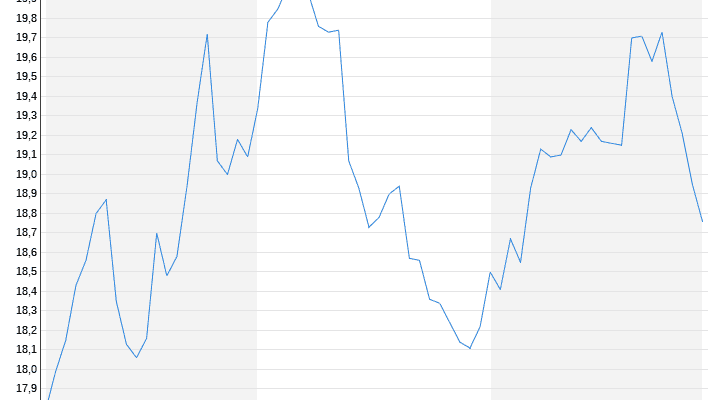Rocket Internet came into being in order to lead as many start-ups as possible to success with innovative ideas. But the business model of the management forge is getting on in years. The incubator says goodbye to the stock market. Founder Samwer urgently needs to realign the company.
The withdrawal from the trading floor is a done deal. Six years after the market debut, Rocket Internet, which has made a name for itself as a start-up forge and investor in young companies such as Hellofresh, Delivery Hero, Zalando or Westwing, is making a backward roll. The delisting does not come as a surprise. Because Rocket was never really able to meet the high expectations associated with the largest IPO of an Internet company in Europe since 2000 in 2014. Although the company successfully listed almost all of its start-ups from the first few years, at some point, headline-grabbing investments became scarce.
At a general meeting last year, company founder Oliver Samwer said: "Our model worked so well that we currently have more capital than ideas". The former prodigy of the German Internet threatened to fizzle out the basis of its business model. Because Samwer actually founded the company together with his two brothers in 2007 with the aim of establishing as many successful startups as possible with innovative ideas. But the original approach of copying fast-growing e-commerce models from the USA is now outdated.
"The development at Rocket shows: In Germany there is no shortage of money and investment capital – there is a shortage of talent and good ideas. Without a sparkling idea, the money of the capital market is of no use either – and Rocket feels that," says the managing director of the Founders Foundation, Sebastian Borek, ntv.de. New ideas are now emerging in other areas such as Industry 4.0 or artificial intelligence. Most recently, the former German tech hope has therefore moved into new business areas and invested less and less money in startups, but instead in online betting, travel, finance and real estate, for example.
"Step back into the garage is only logical"
Competition among venture capitalists has also grown. Rocket are no longer the only ones who want to distribute their money generously. Competitors such as eVentures, Project A and Holzbrinck Ventures also want to attract young, promising companies with investments. Last but not least, according to Borek, many successful companies and venture capitalists emerged from the rocket academy itself, which are now in competition with the startup incubator. "So you could say: Rocket has been bred by the competition to some extent," says Borek.
The assumption that the transparency requirement on the stock exchange is incompatible with the startup DNA falls short of the mark, according to Borek. Ultimately, Trivago or Scout24, but also rocket companies like Zalando and Hello Fresh, would show how it can work. "For me, there is much more to the Rocket case than the startup DNA, the entrepreneurial DNA that defines Oliver Samwer." The decision to delist is based on the claim to take his company back under his wing, apart from the reporting obligations. "It's no secret that Rocket's business model is getting on in years. The step back into the garage to realign yourself, even if the price is high, is consistent," says Borek.
Rocket expects lower costs and a higher degree of entrepreneurial freedom from the delisting in order to be able to exploit the potential of the company and its resources, explained boss Samwer. In a press release it says: "Outside the stock market, it will be possible for society to better concentrate on long-term development, regardless of temporary circumstances on which the focus of the capital market is."
The decision should only be a formality
Specifically, Rocket is now offering its shareholders the repurchase of their securities at the statutory minimum price, which, according to calculations by the Berlin company, is EUR 18.57 per share. At the same time, the company announced a share buyback program for the acquisition of 8.84 percent of the shares, which should run until September 15. Here, too, Rocket is offering 18.57 euros, which is less than Monday's closing price of 18.95. Financing the delisting should not be a problem for Rocket: The investor's market capitalization is currently around 2.6 billion euros, which is only slightly above the cash on hand of 1.9 billion euros at the end of April. The shares were quoted on Tuesday 0.7 percent weaker at 18.81 euros.
Oliver Samwer and Rocket's Global Founders GmbH, which together own almost 50 percent of the Rocket shares, want to hold onto their shares, as the company announced. An extraordinary general meeting on September 24th will clear the way for saying goodbye to the trading floor. Since a simple majority is sufficient, the resolution should be a formality thanks to the votes of Samwer and Global Founders GmbH.
.
